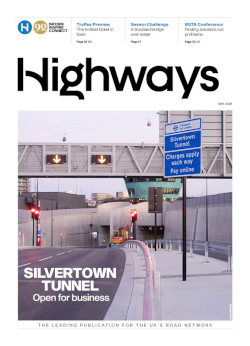One of the UK’s leading experts in connected and automated vehicles is warning the industry needs to be prepared to cope with a major software problem, saying they could risk being stopped from driving.
Reacting to the grounding of Boeing aircraft after two fatal crashes, White Willow Consulting owner Andy Graham says that lessons need to be learned from the decision of the UK, the European Union, China, Australia and India suspending the Boeing 737 Max from their airspace after the crash of an Ethiopian Airlines plane con Sunday and another fatal accident in Indonesia five months ago.
If the software of a CAV were found to be to blame for a crash, it’s possible that all vehicles using the same operating system are forced not to drive until the cause is identified and fixed – potentially meaning thousands of vehicles could not move.
“The awful Boeing 737 accidents have raised questions about how similar issues (two early life accidents that may, or may not be connected) might be detected in the CAV world,” he said. “The tragic events with the airliners quite rightly raise headlines across the globe, and national aviation safety bodies exchange information. But for a CAV, would this be the case if a few isolated accidents were occurring that didn’t make the headlines? How would we know there might be a problem in time to react.”
He added, “Whilst there are effective systems for manufacturers to currently recall vehicles with defects, this is focussed around the vehicle itself. But in the CAV World, what if a combination of the vehicle, the external environment and infrastructure leads to what appears to be a one off case but may occur in the same circumstances with a different vehicle (but the same CAV software say) in another country?
“The early adoption of CAVs will be a great opportunity for learning, but we need to not rely on the current ways of investigating accidents which are largely targeted at human error. The RAC Foundation has investigated an Accident Investigation Branch for Roads, based on rail, maritime and aviation practice, which I support whether CAVs are adopted or not. The need to exchange CAV accident data globally not just on vehicles but the surrounding “system of systems” adds weight to this approach.
“And if a CAV really does have a fault, then the time to download new software or fix sensors may cause operational issues, especially for MaaS providers.”
Andy Graham will be moderating a debate on driverless vehicles at Traffex on 4 April. To sign up for Traffex, 2-4 April at Birmingham’s NEC, go to www.traffex.com?utm_source=rss&utm_medium=rss.





